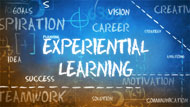
-
 Understanding Early School Leaving
An overview of the current situation of early school leaving in Europe
Understanding Early School Leaving
An overview of the current situation of early school leaving in Europe
-
 Methodological and Pedagogical Aspects
A definition of what experiential education is
Methodological and Pedagogical Aspects
A definition of what experiential education is
-
 Theatre as Experiential Learning Tool
The role of theatre as a site for learning in a community context
Theatre as Experiential Learning Tool
The role of theatre as a site for learning in a community context
-
 Practical Examples of Theatrical Laboratories
15 proposals of theatrical laboratories
Practical Examples of Theatrical Laboratories
15 proposals of theatrical laboratories
-
 Contractual Partners
From this section it is possible to access to a description of each contractual partner of OFF-Book Project. There are 8 partners from 3 different European countries.
Contractual Partners
From this section it is possible to access to a description of each contractual partner of OFF-Book Project. There are 8 partners from 3 different European countries.
-
 Schools
From this section it is possible to access to the information about the schools involved in the OFF-Book Project in the 3 European countries participating in the project. The school teachers and students contribute to the testing of all the intellectual outputs.
Schools
From this section it is possible to access to the information about the schools involved in the OFF-Book Project in the 3 European countries participating in the project. The school teachers and students contribute to the testing of all the intellectual outputs.
-
 Associated Partners
As a result of the exploitation activity a number of associated partners officially joined the project in order to contribute to the improvement of the project impact on their target groups and to ensure the project sustainability by continuing using the project deliverables in the next years.
Associated Partners
As a result of the exploitation activity a number of associated partners officially joined the project in order to contribute to the improvement of the project impact on their target groups and to ensure the project sustainability by continuing using the project deliverables in the next years.
Information & Events
Latest News
The students have to deal with maltreatment, possible neglect, bullying and discrimination issues in the...Events
The OFF-Book project has been promoted trough conferences and articles.
This section of the OFF-Book portal provides administrative information for the project contractual partners and for the European Commission and it is password protected.
Teachers’ Guidelines
Homepage > Teachers’ Guidelines > Methodological and Pedagogical Aspects

A definition of what experiential education is
Methodological and Pedagogical Aspects
1. Experiential Learning Module
Experiential learning is a method of educating through first-hand experience. Throughout the experiential learning process, the student is actively engaged in posing questions, investigating, experimenting, being curious, solving problems, assuming responsibility, being creative and constructing meaning. Skills, knowledge and experience are also acquired outside of the traditional academic classroom setting and may include internships, studies abroad, field trips, field research and service-learning projects.
Experiential learning engages students in critical thinking, problem solving and decision making in contexts that are personally relevant to them. This approach to learning also involves creating opportunities for debriefing and consolidation of ideas and skills through feedback, reflection, and the application of the ideas and skills to new situations.
The concept of experiential learning was first explored by John Dewey and Jean Piaget, amongst others. It was made popular by education theorist David A. Kolb, who, along with Ron Fry, developed the experiential learning theory, which is based on the idea that learning is a process whereby knowledge is created through transformation of experience. It is based on four main elements which operate in a continuous cycle during the learning experience:
Experiential learning engages students in critical thinking, problem solving and decision making in contexts that are personally relevant to them. This approach to learning also involves creating opportunities for debriefing and consolidation of ideas and skills through feedback, reflection, and the application of the ideas and skills to new situations.
The concept of experiential learning was first explored by John Dewey and Jean Piaget, amongst others. It was made popular by education theorist David A. Kolb, who, along with Ron Fry, developed the experiential learning theory, which is based on the idea that learning is a process whereby knowledge is created through transformation of experience. It is based on four main elements which operate in a continuous cycle during the learning experience:
- Concrete experience
- Reflective observation
- Abstract conceptualization
- Active experimentation
- The first stage – the student decodes the image of the experience by reflexive observation, having in mind questions like: „What happened?”, „Which are the results?”
- The second stage – the experience becomes abstract. At this stage the student already has theories, but there appear solutions to the problems due to lateral thinking about the matter.
- The student usually draws upon questions like: „What do these results mean?”, „What influences the result?”, „How have I influenced the results?”. At this stage the matter is more profoundly understood.
- The third stage – after building up ideas and solutions connected to the concrete experience, this step consists of placing the learning in a practical stage which will generate improved future actions.
- The fourth stage – it involves following out the ideas and the solutions found in the previous stages, this leading to a new experience which will carry on with the cycles of the experiential learning.
Online Resources
- Experiential learning cycleInformation about the experiential learning cycle and its use in activities.
- What is experiential learning?The definition of the experiential learning, theories and examples.


